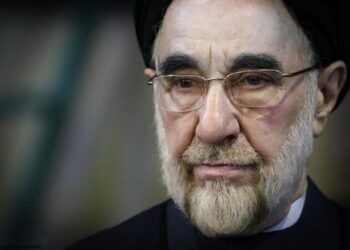If true, it would be the first assassination carried out abroad by the Islamic Republic in about 15 years.
Until now Turkish authorities had assumed members of the Kurdish opposition group, the Kurdistan Workers Party (PKK), were behind the booby-trapped scooter that exploded May 26, injuring six.
The Italian newspaper, basing its story on “Middle Eastern sources,” reported last week that the target of the attack was Moshe Kimchi, Israel’s consul to Istanbul. It said the explosives were planted by three men with ties to Iranian intelligence.
The assassination attempt was assumed to be in retaliation for the killing of two Iranian nuclear scientists in Tehran in December 2009 and November 2010, which Iran attributes to Mossad, the Israeli intelligence service.
“It appears that the mission was carried out by three Lebanese members of Hezbollah who entered the country with ‘clean’ Iranian passports, and received local logistical support,” said the newspaper, one of Italy’s most respected dailies.
According to a Washington-based source quoted by the newspaper, the agents went to Turkey from Beirut using Iranian passports and had the Israeli consul under surveillance for some time. They studied the route taken by Kimche from his home to his office for many days before acting.
According to the report, on the day of the attack, Kimchi’s car was being driven slower than usual and, as a result, he was some distance from the bomb when it exploded and was uninjured. No group claimed responsibility for the attack. The predominant assumption in Turkey was that it was the work of the PKK, and was intended to affect the upcoming Turkish parliamentary elections.
Intelligence sources in Ankara denied the report in the Italian daily, calling it Israeli propaganda. “Israel releases false information once in a while for disinformation purposes,” the source said.
The attack had been preceded by unusual warnings by Israeli intelligence. The Counter-Terrorism Bureau issued a number of travel warnings, saying terrorists were planning to target Israelis and Jews abroad. The announcement referred to specific countries, including Turkey, Greece, Malta and Cyprus.
In the 1980s and early 1990s, the Islamic Republic assassinated dozens of people outside Iran. Most were Iranian expatriates, but some other nationalities were hit, including a half dozen Saudi diplomats after the deadly battle in 1987 between Iranian pilgrims and Saudi police in Mecca.
Due to the bad publicity Iran received after Iranian assassins were apprehended in France for the 1991 killing of former Prime Minister Shahpur Bakhtiar and in Germany for the 1992 murders of four Kurdish leaders in Berlin’s Mykonos restaurant, the Islamic Republic appears to have called a halt to assassinations abroad. If the Turkish bombing was indeed an Iranian plot, it would appear to the first such murder attempt by Iran in about 15 years.














